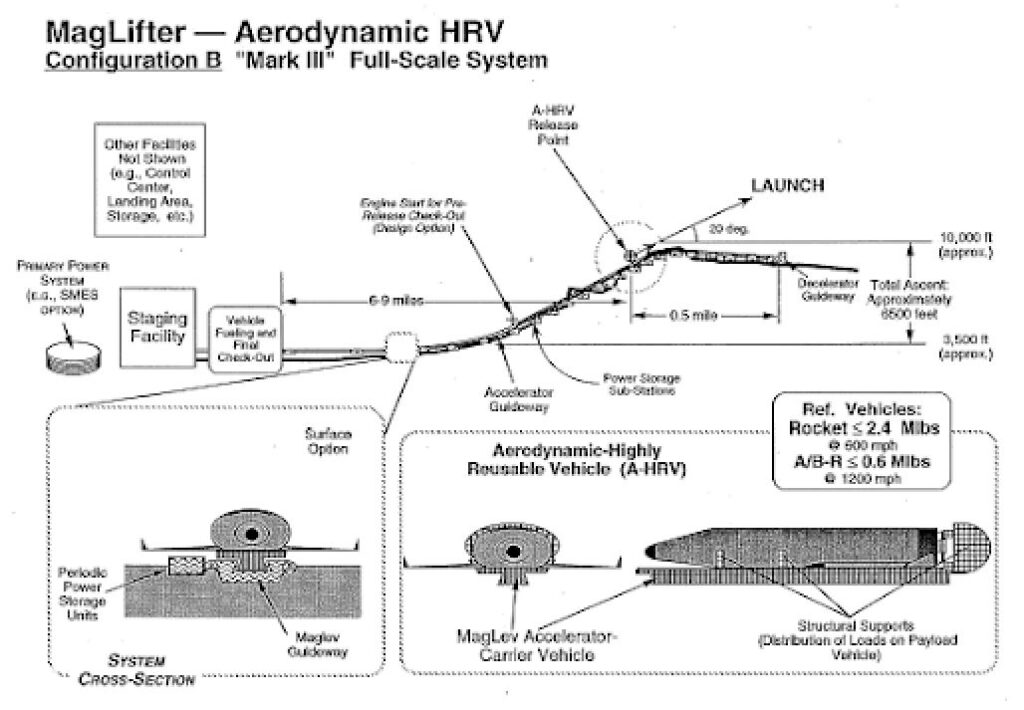Our technology originated in three U.S. national laboratories
where it was validated for its ability to manufacture high-temperature superconducting wire at prices competitive with copper. The technology was considered for use in MagLifter, an alternative Space Shuttle launch system proposed after the Challenger explosion.
MagLifter was canceled in 1996 when the Clinton Administration transferred the nation’s Multiple Independent Reentry Vehicle (MIRV) technology to the People’s Republic of China (PRC). This technology transfer faced strong objections from the Department of Commerce and elements within the Pentagon. It enabled the PRC to enter the space launch industry and target multiple American cities with nuclear warheads launched from a single ballistic missile.
The USAF generals managing MagLifter were so frustrated by obstruction from Wall Street and Washington, D.C., that they even approached Native American tribes to place the project outside those establishments, which they believed were purposefully undermining American interests.

A month after MagLifter was canceled, the founder of Cross Roads was called to the Navy Research Laboratory (NRL) for a “MagLifter meeting.” This was unusual because MagLifter was an Air Force project, and he had never seen a Navy representative at any prior meeting.
At the NRL meeting, the founder was privately informed by a senior defense planner that the nation’s industrial base was being destroyed and transferred to the PRC. High levels of government funding would continue to support economically unsustainable technologies like windmills and solar cell farms, or technologies already transferred to Asian partners (e.g., flat panel displays), as they did not provide sufficient intrinsic value to create high-paying jobs for Americans.
He was urged to repurpose his technology for even higher economic value than anticipated and advised to wait until the United States economically decoupled from communist China before launching a commercial enterprise. The United States would not be allowed to industrially prosper until that decoupling occurred, with capital financing and major corporations actively participating in this wealth transfer that has profoundly destabilized American interests.
He was told that the American people needed him because he possessed technology capable of restoring a strong physical economy. Without such an economy, America could not afford a military, and without a military, the nation could not survive.
